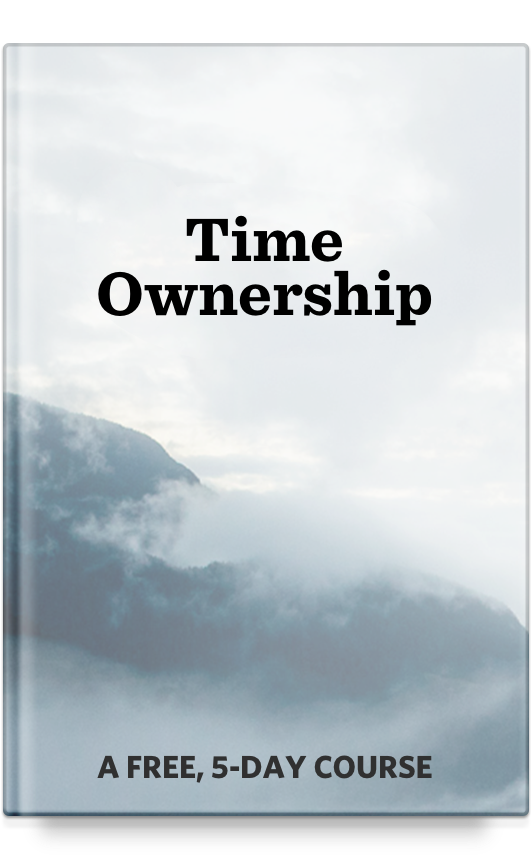Mindsets are not inherently good or bad. They are beliefs or filters that color the way we live, make decisions, and process our experiences.
If I have an underlying mindset of scarcity related to my finances and resources, I will cling to what I have for fear that it is all I will ever have. This will keep me from engaging in generosity and sharing what I have with others. The fear that I may lose what I have keeps me from exploring what might be.
Rather, an abundance mindset says it’s okay to lend out my possessions because if they are broken or misplaced, I can always get another. It’s a joy to give to those in need because I have what I need, and I will have what I need.
Mindsets and beliefs are powerful. In some cases, they are the difference between life and death.
The Obstacles is the Way is the most profound book I have read on the subject of mindsets and the ways they impact daily living. It’s a book I frequently reference.
Making progress on goals comes down to the actions we take. Our actions are dictated by our beliefs, so to achieve something we have never done before, we must first change what we believe.
Here are a few of my favorite excerpts from The Obstacles is the Way.
We blame our bosses, the economy, our politicians, other people, or we write ourselves off as failures or our goals as impossible. When really only one thing is at fault: our attitude and approach. (pg. 2)
It starts with ownership — taking ownership of what we can control and choosing to do something about it. Blaming others is easy, but taking responsibility and being accountable is up to us.
Overcoming obstacles is a discipline of three critical steps. It begins with how we look at our specific problems, our attitude or approach; then the energy and creativity with which we actively break them down and turn them into opportunities; finally, the cultivation and maintenance of an inner will that allows us to handle defeat and difficulty. It’s three interdependent, interconnected, and fluidly contingent disciplines: Perception, Action, and the Will. (pg. 9)
This is the Ryan’s thesis of the book. He defines perception, action, and our will each as a discipline of their own. We can alter our perceptions, take action, and strengthen our will. Just acknowledging these as skills that can be refined is a huge step in the right direction.
Uncertainty and fear are relieved by authority. Training is authority. (pg. 28)
This is possibly my favorite thought from the book. Uncertainty and fear are replaced when we submit to a process of training. Authority comes through the repetition of doing something over and over again. Introducing a new variable and practicing again. When you’re well practiced, you dismantle fear’s grip.
Our perceptions determine, to an incredibly large degree, what we are and are not capable of. In many ways, they determine reality itself. When we believe in the obstacle more than in the goal, which will inevitably triumph? (pg. 50)
Just re-read that a few times. There’s nothing I can add. Our beliefs determine our limits.
Action is the solution and the cure to our predicaments. (pg. 63)
One of our mantras is action brings clarity. Much can be gained from taking the first step. Instead of waiting for a moment of clarity, gain clarity by taking action.
We talk a lot about courage as a society, but we forget that at its most basic level it’s really just taking action. (pg. 75)
Not only is taking action courageous, it’s vulnerable. Stepping out of our comfort zone requires a massive amount of courage.
In the chaos of sport, as in life, process provides us a way. It says: Okay, you’ve got to do something very difficult. Don’t focus on that. Instead break it down into pieces. Simply do what you need to do right now. And do it well. And then move on to the next thing. Follow the process and not the prize. (pg. 88)
Standing at the start line of a new goal is intimidating. Don’t focus on the finish line, focus on what you need to do right now to inch forward.
Replace fear with the process. Depend on it. Lean on it. Trust in it. (pg. 92)
This goes back to replacing fear with authority. Process becomes essential when it comes to creative endeavors. When dealing with the unknown, make sure you have a proven process that you can rely on instead of reinventing the wheel every time. Fear makes us do funny things. Trust process to navigate the uncertainty fear brings.
We don’t get to choose what happens to us, but we can always choose how we feel about it. (pg. 154)
It all comes back to taking ownership — we always have a choice. And as Greg McKeown says, “The ability to choose cannot be taken away or even given away—it can only be forgotten.”
